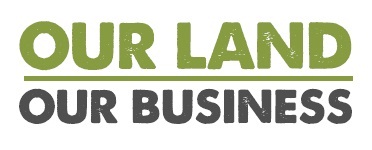Source: IPS – Inter Press Service
March 29, 2016
Elizabeth Fraser
I was taught that responsibility means admitting your mistakes and being accountable when you make a mistake. I still believe this to be true for individuals and institutions. So when a powerful group like the World Bank makes a mistake, I expect it to be accountable for its wrong-doings, and to do everything possible to make sure those mistakes don’t happen again.
Unfortunately, this couldn’t be farther from reality.
The issue I’m referring to is last year’s launch of the World Bank’s “new” program in Ethiopia, Enhancing Shared Prosperity through Equitable Services (ESPES). On the surface, ESPES looks reasonable. Its main goal is to send money to local-level authorities across the country to make sure all citizens have access to basic services like water, roads, education, healthcare and more. But once you start peeling the layers back, the program stops looking so rosy.
The biggest issue is that ESPES is replacing the almost decade-long, World Bank-funded Promoting Basic Services (PBS) program. PBS started in 2006 with almost identical goals to the ESPES program. The snag is that for years, there were extremely serious allegations that PBS had become entwined with the Ethiopian Government’s program, “villagization,” which has forcibly relocated indigenous communities and made their land available for large-scale land grabs.
In 2012, members of the Anuak community – an indigenous group that has borne the brunt of these forced relocations and abuses – filed a formal complaint with the World Bank’s independent Inspection Panel. In early 2015, the Panel released its final report and it was scathing:the Bank’s finances couldn’t be properly tracked, important safeguards had not been applied, and there was poor monitoring and oversight.
The Panel shied away from making rulings about whether the Bank should be responsible for the human rights abuses that the Anuak faced – they claimed it was outside of the scope of their investigation, a point worthy of analysis itself – but they did rule that the PBS program had become enmeshed with the villagization program, with far-reaching consequences.
View Full Article at IPS – Inter Press Service

Opinion: World Bank Reinvents Tainted Aid Program for Ethiopia
Source: IPS – Inter Press Service
March 29, 2016
Elizabeth Fraser
I was taught that responsibility means admitting your mistakes and being accountable when you make a mistake. I still believe this to be true for individuals and institutions. So when a powerful group like the World Bank makes a mistake, I expect it to be accountable for its wrong-doings, and to do everything possible to make sure those mistakes don’t happen again.
Unfortunately, this couldn’t be farther from reality.
The issue I’m referring to is last year’s launch of the World Bank’s “new” program in Ethiopia, Enhancing Shared Prosperity through Equitable Services (ESPES). On the surface, ESPES looks reasonable. Its main goal is to send money to local-level authorities across the country to make sure all citizens have access to basic services like water, roads, education, healthcare and more. But once you start peeling the layers back, the program stops looking so rosy.
The biggest issue is that ESPES is replacing the almost decade-long, World Bank-funded Promoting Basic Services (PBS) program. PBS started in 2006 with almost identical goals to the ESPES program. The snag is that for years, there were extremely serious allegations that PBS had become entwined with the Ethiopian Government’s program, “villagization,” which has forcibly relocated indigenous communities and made their land available for large-scale land grabs.
In 2012, members of the Anuak community – an indigenous group that has borne the brunt of these forced relocations and abuses – filed a formal complaint with the World Bank’s independent Inspection Panel. In early 2015, the Panel released its final report and it was scathing:the Bank’s finances couldn’t be properly tracked, important safeguards had not been applied, and there was poor monitoring and oversight.
The Panel shied away from making rulings about whether the Bank should be responsible for the human rights abuses that the Anuak faced – they claimed it was outside of the scope of their investigation, a point worthy of analysis itself – but they did rule that the PBS program had become enmeshed with the villagization program, with far-reaching consequences.
View Full Article at IPS – Inter Press Service